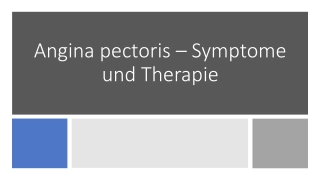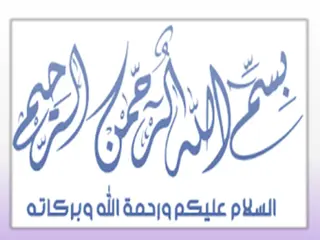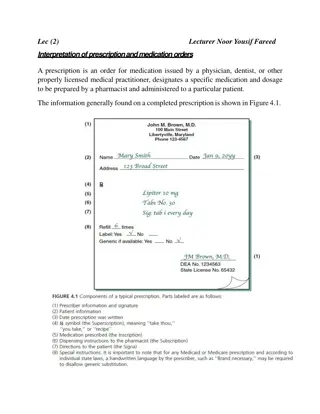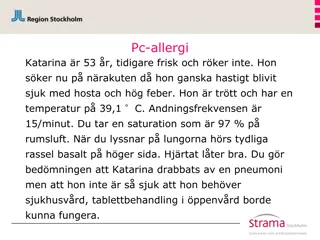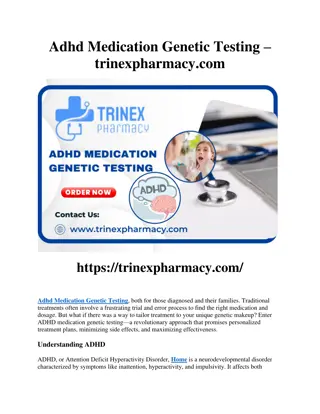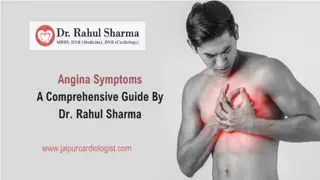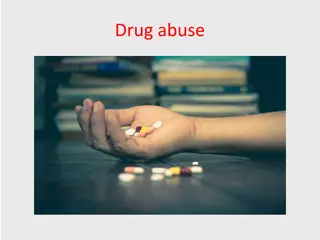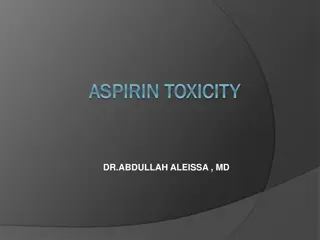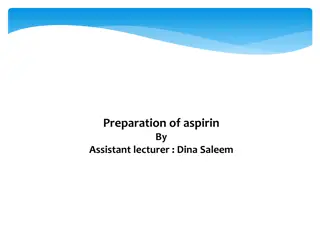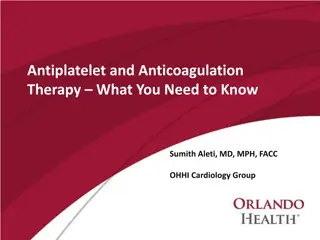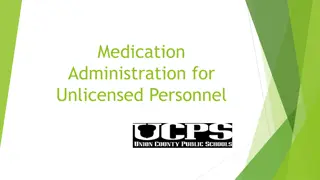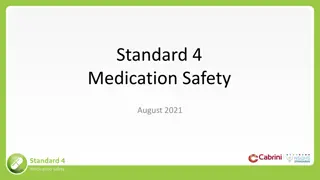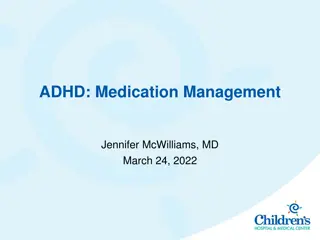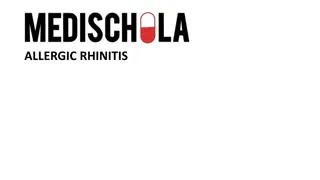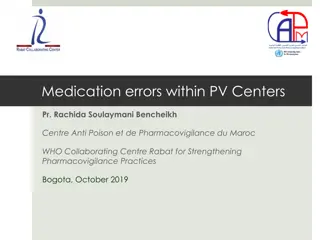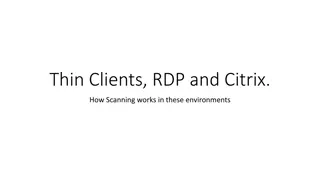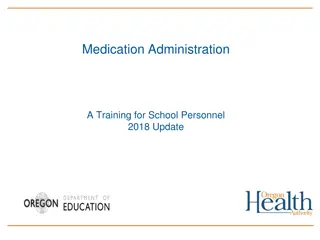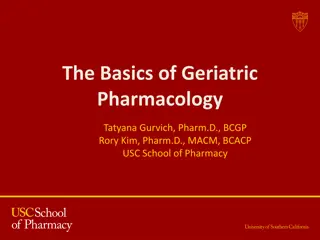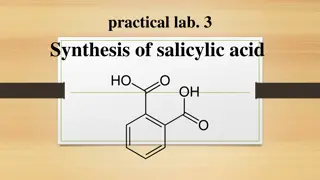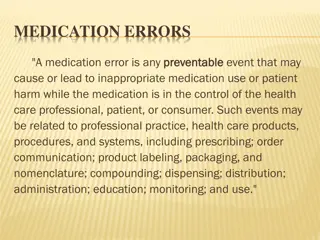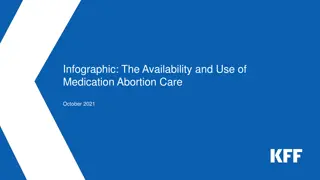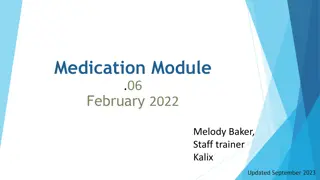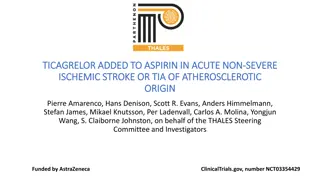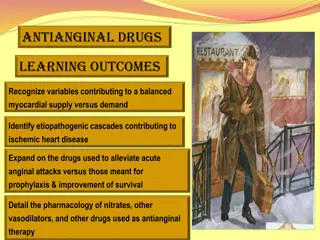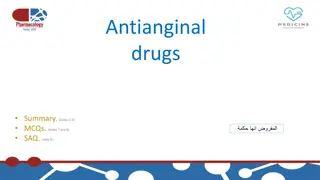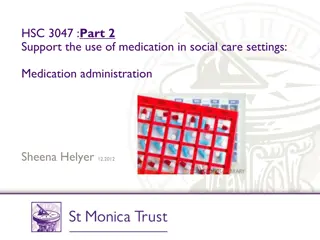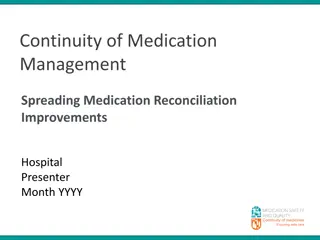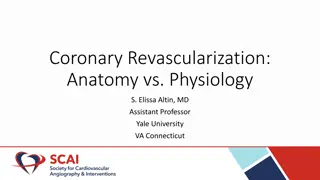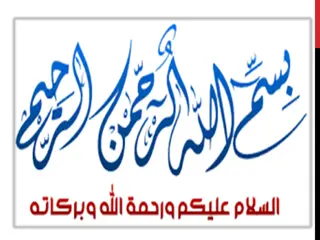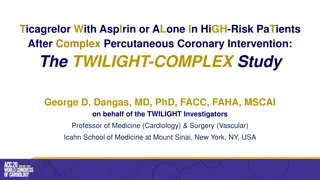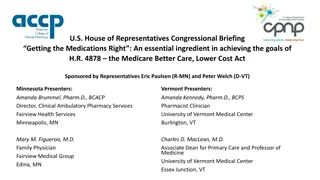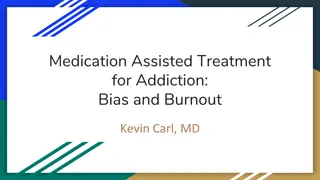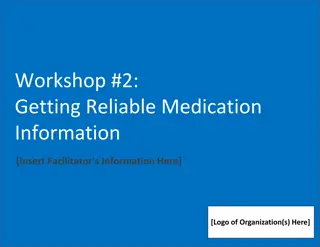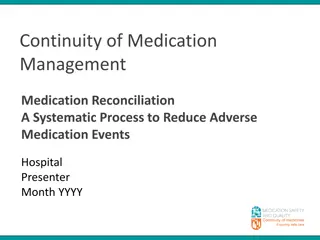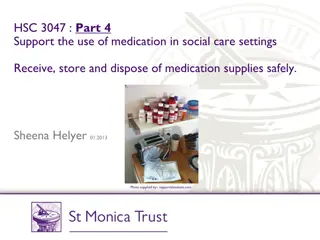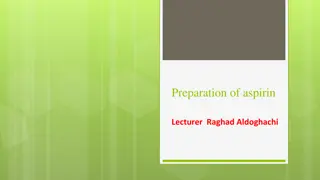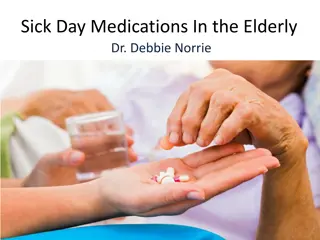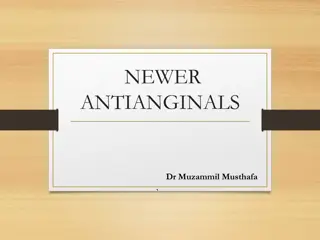Angina Pectoris: Symptoms and Therapy
The symptoms and treatment of angina pectoris, a condition characterized by chest pain and discomfort. Discover effective therapies and how to manage symptoms.
1 views • 9 slides
Aspirin Assay by Direct Acid-Base Titration Experiment Overview
Exploring the process of assessing aspirin purity through direct acid-base titration using sodium hydroxide as a standard solution. The experiment includes details on aspirin properties, dosage, acidity, decomposition, and metabolism. Key aspects covered include the aim of the experiment, the princi
5 views • 15 slides
Understanding Medication Orders and Prescriptions
A prescription is a crucial order for medication issued by medical practitioners, specifying medication details for a specific patient. This includes dosage, patient information, and may require compounding by pharmacists. Different types of prescriptions exist, such as those for single-component pr
4 views • 11 slides
Evaluation and Treatment for Pneumonia in Patient with Penicillin Allergy
A 53-year-old woman, Katarina, presents with sudden illness of cough, high fever, and fatigue. With signs of pneumonia, but allergic to penicillin, the decision involves choosing appropriate treatment options such as PcV and considering past allergic reactions and infection history. Evaluating poten
3 views • 20 slides
Adhd Medication Genetic Testing - trinexpharmacy.com
Adhd Medication Genetic Testing, both for those diagnosed and their families. Traditional treatments often involve a frustrating trial and error process to find the right medication and dosage. Call Us On 1 (747) 209 - 3649 Email : sales@trinexpharmacy.com
2 views • 5 slides
Cardiologist In Jaipur-Dr Rahul Sharma
Angina Symptoms: Angina is a condition characterized by chest pain or discomfort caused by reduced blood flow to the heart muscle. It\u2019s often a symptom of underlying coronary artery disease, which occurs when the arteries that supply blood to the heart become narrowed or blocked by plaque build
1 views • 6 slides
Understanding Medication and Pharmacy Vocabulary
This content provides essential information about drug abuse, medication vocabulary, dosage, effects, pharmacy, and administration of medicines. It covers terms like prescription, instruction, dose, effect, precaution, pharmacy, pharmacist, pharmaceutical, and common actions related to medication us
1 views • 27 slides
Understanding Aspirin Toxicity: Overview and Management
Aspirin toxicity, though decreasing in incidence, can still result in severe consequences such as metabolic acidosis, seizure, and even death. This condition is often underestimated due to lack of familiarity with its clinical presentation. Treatment focuses on maintaining salicylate in the ionized
0 views • 22 slides
Preparation of Aspirin: Overview and Synthesis Methods
The preparation of aspirin involves the synthesis of 2-acetyl salicylic acid, known for its therapeutic uses as an analgesic, antipyretic, and anti-inflammatory agent. This process includes the detailed characteristics, stability, mechanism, and synthesis methods of aspirin. Important considerations
0 views • 12 slides
Understanding Antiplatelet and Anticoagulation Therapy in Cardiology
This informative content covers the current practice guidelines and medication options for antiplatelet therapy in CAD patients, discussing different medications, optimal duration of therapy, CV risk assessment, and anticoagulation options in atrial fibrillation. It delves into the role of aspirin i
0 views • 31 slides
School Medication Administration Policies and Practices
This content discusses the medication administration policies for unlicensed personnel in schools, particularly focusing on the UCPS Board of Education Medication Policy in North Carolina. It emphasizes the importance of administering medication only when necessary and the authorization granted to s
0 views • 54 slides
Medication Safety Best Practices for Healthcare Professionals
The Medication Safety Standard emphasizes the importance of safe medication practices, including prescribing, dispensing, and administering medicines. It also highlights the need for patients to be informed about their medications and understand potential risks. The six rights of medication administ
0 views • 13 slides
ADHD Medication Management Strategies and Research Findings
Reviewing common medication strategies for treating ADHD, this presentation by Dr. Jennifer McWilliams explores clinical challenges, side effects, and new medication options. The discussion includes the Multimodal Treatment Study of Children with ADHD (MTA) and the Preschool ADHD Treatment Study (PA
0 views • 25 slides
Understanding Allergic Rhinitis: Causes, Symptoms, and Treatment
Allergic rhinitis is an atopic disease characterized by inflammation of the nasal mucosa due to hypersensitivity reactions. It commonly peaks in the second to fourth decades of life, with symptoms such as nasal irritation, sneezing, watery discharge, and more. Risk factors include family history, al
0 views • 10 slides
Understanding Medication Errors in Pharmacovigilance Centers
Adverse drug reactions resulting from medication errors are a significant concern faced by pharmacovigilance centers. This content discusses the importance of this problem, contributing factors, the relevance to pharmacovigilance centers, and strategies for managing medication errors. It highlights
4 views • 29 slides
Understanding Scanning in Thin Clients, RDP, and Citrix Environments
Learn about the difference between Fat Clients and Thin Clients, various types of Thin Clients, reasons for using Thin Clients, how programs are accessed on servers, and issues with scanning in RDP connections in this informative guide. Discover why Thin Clients are preferred for centralized softwar
1 views • 16 slides
School Medication Administration Training Guidelines
Legal requirements and policies for administering medications in schools are outlined, including training for designated personnel and procedures for student self-medication. The guidelines cover medication administration during school activities, transit, and before/after-school care for students w
0 views • 34 slides
Comprehensive Guide to Geriatric Medication Management
Explore the essentials of geriatric pharmacology, including the impact of polypharmacy, medication-related problems in the elderly, and practical factors affecting medication management. Learn about medication reconciliation, Beers criteria, and common medications affecting seniors' health and well-
0 views • 25 slides
Synthesis of Salicylic Acid: Theory, Derivatives, and Applications
Salicylic acid is synthesized from methyl salicylate through ester hydrolysis with aqueous alkali. It is a versatile compound used in organic synthesis, as a plant hormone, and derived from salicin metabolism. The derivatives of salicylic acid can minimize gastric disturbances and enhance therapeuti
4 views • 12 slides
Understanding Medication Errors in Healthcare
Medication errors are preventable mistakes in medication use that can lead to patient harm. Factors contributing to these errors include human-related, system-related, and medication-related issues. Human-related factors involve providers and patients being overworked, under-trained, or distracted,
0 views • 13 slides
Safe and Accessible Medication Abortion Care Trends
Medication abortion care, specifically the use of mifepristone, is a safe and effective option for ending early pregnancies. Data from 2018 shows that medication abortion accounted for a significant percentage of abortions before 9 weeks gestation in the U.S. Telehealth services have made accessing
0 views • 8 slides
Medication Administration Process and Staff Responsibilities Overview
Detailed information on medication administration process, responsibilities of staff members, and general guidelines for ensuring safe and effective medication management. The process involves prescribing medication, filling prescriptions, monitoring the individual, assistance in administration, and
0 views • 62 slides
Ticagrelor Added to Aspirin in Acute Non-Severe Ischemic Stroke or TIA of Atherosclerotic Origin
Among patients with transient ischemic attack (TIA) or minor ischemic strokes, adding ticagrelor to aspirin has shown superior efficacy in preventing stroke or death, particularly in those with ipsilateral atherosclerotic stenosis. The THALES trial demonstrated that ticagrelor added to aspirin was m
0 views • 14 slides
Understanding Antianginal Drugs and Treatment Options
Recognize the variables contributing to balanced myocardial supply and demand, identify etiopathogenic cascades in ischemic heart disease, and learn about drugs for acute angina relief and prophylaxis. Delve into the pharmacology of nitrates, vasodilators, and other antianginal therapies. Explore th
2 views • 18 slides
Understanding Antianginal Drugs: Mechanisms, Classification, and Usage
Signs, symptoms, and types of angina pectoris are explored, along with the determinants of oxygen demand and supply. Treatment options, including organic nitrates like isosorbide mononitrate and nitroglycerine, are detailed, highlighting their mechanisms of action, hemodynamic effects, adverse react
2 views • 10 slides
Supporting Medication Administration in Social Care Settings
Explore the importance of medication administration in social care settings, emphasizing techniques for safely giving various types of medications. Understand medication instructions, care planning, and recording procedures. Learn about the risks of verbal messages for medication changes and the imp
0 views • 42 slides
Medication Management Continuity: Improving Patient Safety in Hospitals
The issue of continuity in medication management can lead to errors and harm in healthcare settings. Incomplete medication histories at admission contribute to prescribing errors, with omissions of regular medications being a common mistake. Quality improvement initiatives and diagnostics, such as I
0 views • 16 slides
Understanding Coronary Revascularization: Anatomy vs. Physiology
This content discusses the prevalence of angina in women compared to men, the importance of stable angina in predicting outcomes, the need for better diagnostic methods for coronary angiography, and the differences in obstructive CAD by sex and ethnicity in stable angina cases. It highlights the cha
0 views • 22 slides
Assay of Aspirin by Indirect Acid-Base Titration
Indirect titration, also known as residual titration, is an analytical technique used to determine the weight of an unknown sample by employing excess standard solution. In the case of aspirin, which is a weak acid undergoing slow hydrolysis, back titration with NaOH and HCl is utilized to overcome
1 views • 13 slides
Understanding Allergies and Antiallergic Agents
Allergies are hyperreactivity conditions caused by particular substances called allergens. The immune response plays a key role in allergic reactions, which occur in three stages: immunologic, pathochemical, and pathophysiological. These reactions can manifest immediately or with a delayed onset. An
0 views • 54 slides
Unveiling Recent News Highlights: Jon Gruden Resigns, Aspirin Usage Guidance, and More
Former football coach Jon Gruden resigned amid controversy over offensive emails, a U.S. panel advised against routine aspirin use, data shows risks for unvaccinated elders, a Maryland couple faces charges for selling U.S. secrets, the Port of Savannah faces container congestion, and Congressional D
0 views • 14 slides
Ticagrelor Monotherapy vs. Ticagrelor + Aspirin in High-Risk PCI Patients: TWILIGHT-COMPLEX Study
Patients undergoing complex PCI are at high risk of ischemic events. The TWILIGHT-COMPLEX study aims to compare the safety and efficacy of ticagrelor monotherapy versus ticagrelor with aspirin in patients who completed 3 months of DAPT post-PCI. While extended DAPT may reduce ischemic events, it als
0 views • 27 slides
Improving Medication Management in Healthcare
This Congressional briefing highlights the importance of getting medications right for achieving the goals of the Medicare Better Care, Lower Cost Act. It emphasizes Comprehensive Medication Management (CMM) and Team-Based Care, showcasing the efforts of healthcare professionals in Fairview Health S
0 views • 26 slides
Understanding Medication Assisted Treatment (MAT) for Addiction
Medication Assisted Treatment (MAT) combines medications with counseling and therapies to treat substance use disorders. This approach challenges historical biases and stigma around addiction, offering effective options like Methadone, Naltrexone, and Buprenorphine for opioid addiction. Despite bias
0 views • 16 slides
Workshop #2: Getting Reliable Medication Information
Join us in Workshop #2 where we focus on acquiring trustworthy medication information. Learn how to describe essential medication details, organize information effectively, and utilize reliable resources for queries. Engage in discussions on medication histories, completing tasks, and exploring aven
0 views • 25 slides
Enhancing Medication Management for Safer Healthcare
Medication management continuity is crucial in healthcare to prevent adverse events. Incomplete medication histories, errors in prescribing, and omissions during transitions of care can lead to harmful outcomes. By implementing systematic processes like medication reconciliation, healthcare provider
0 views • 22 slides
Safe Medication Handling in Social Care Settings
Learn about the safe handling of medication supplies in social care settings, including receiving, storing, and disposing of medications. Understand the importance of following local medication policies and job descriptions. Discover key aspects of delivering medication, providing information to ser
0 views • 16 slides
Preparation of Aspirin: Synthesis and Safety Guidelines
Aspirin, derived from salicylic acid, is synthesized by reacting salicylic acid with acetic anhydride using a catalyst such as sulfuric acid. The product is purified through recrystallization. Safety precautions must be taken due to the hazardous nature of the chemicals involved. The procedure invol
0 views • 12 slides
Understanding Medication Management for the Elderly
This presentation by Dr. Debbie Norrie discusses the physiological changes in the elderly that can lead to medication harm. It covers aspects such as pharmacokinetics and pharmacodynamics, emphasizing the need to consider withdrawal of certain medications in the elderly population. The speaker intro
0 views • 52 slides
Understanding Newer Antianginals and Cardiomyocyte Metabolism
Chronic angina is a condition marked by impaired quality of life and decreased life expectancy, primarily due to myocardial ischemia. It is characterized by symptoms like tightness, heaviness, and pressure sensation, often located retrosternally. The pathophysiology involves a mismatch between oxyge
0 views • 73 slides
